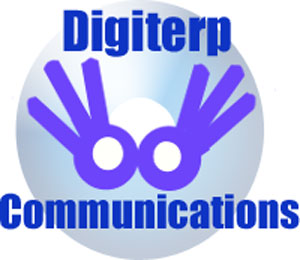The following videos are reflections on an interpreted situation at the 2014 MRID Fall Conference. They represent what could have been a situation that led to broken trust between interpreters and Deaf people. However, because of the opportunity for open dialogue, it led to better understanding of the interpreting process and the ways that interpreters and Deaf people can work together as a team for better results.
Introduction
Doug Bowen-Bailey shares an introduction to the process of doing a case conference with Carrie Wilbert, Sonny Wasiloski, Curt Slater, Patty Gordon, and Nic Zapko.
The Interpreter’s Dialogue
Carrie and Doug have a conversation about how case conferencing allows them to better understand the choices they make in their work by looking at demands faced and controls used – as well as the consequences for those involved. This video was filmed first and the following videos were created in response to viewing this video – as well as people’s own participation in the event discussed.
One Deaf Participant’s Perspective
Sonny Wasilowski shares his experience with the interpreters at this dinner and presentation.
The Other Deaf Participant’s Perspective
Curt Slater shares how the evening went for him as well as what he learned in this process of dialogue.
Fostering Dialogue
Patty Gordon and Nic Zapko led a workshop the next day that encouraged open and honest dialogue between Deaf people and interpreters. This situation, from the previous night, was one of the topics raised. They share how what is documented in these videos is a great example of what this type of conversation can lead to in strengthening relationships between interpreters and Deaf people.
Further Information on Case Conferencing
- Kendra Keller discusses case conferencing on StreetLeverage.com
- Anna Witter-Merithew shares benefits of reflective practice on StreetLeverage.com
- Robyn Dean describes how supervision and case conferencing is an important part of ethical development on StreetLeverage.com
- Reflective Practice Case Study Series sponsored by the CATIE Center at St. Catherine University
Further Discussion
We hope that our learning together spurs on other discussion. If you would like to share a comment here, please do. Doug will be moderating the discussion – mostly to ensure that there are not a lot of spam comments. If you would like to share a comment in ASL, all you need to do is post a link to the video in the comment form.

Thank you so much for this fine opportunity of modeling of case conferencing. I can see questions and opinions from many perspectives. This situation shows what glitches can occur when interpreters are chosen last minute, and there is no time to address possible concerns beforehand. At the time a problem is happening (“can you see?” signed from the stage), does not afford either party to fully address the needs. It’s inherently awkward. Thanks for showing how our work can be discussed after the fact.. we need to do more of this.